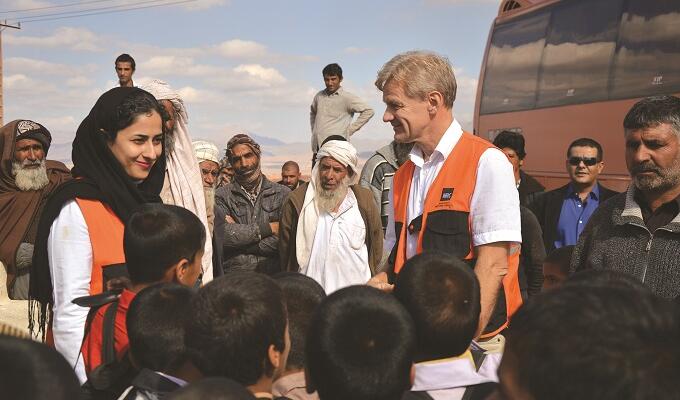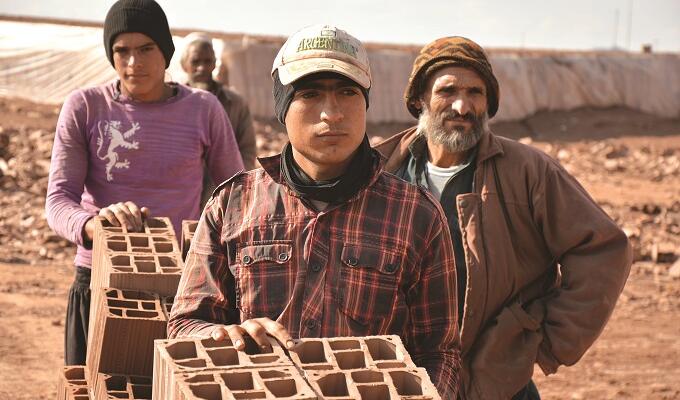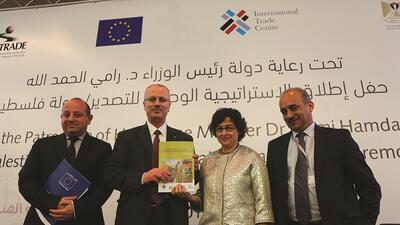

Refugees represent an opportunity, not a challenge
We live in a time of staggering humanitarian crisis. There are now more than 50 million people living as refugees worldwide, fleeing conflict and climate change. The international community is required to provide more support than ever before.
Many countries view an influx of refugees merely as a problem. However, with every crisis comes opportunity. When refugees receive full rights to engage meaningfully with the local economy and are given unimpeded access to work, not only do they relieve a host country of burden by supporting themselves, they also benefit the local economy. It is a simple fact, but one too often ignored: refugees can be good for the economy.
International law has enshrined the right of refugees and asylum seekers to safe and lawful employment. The opportunity to work allows refugees to become less dependent on aid. More than that, engaging in productive work is a necessary part of human dignity and sense of social worth. However, more often than not they find these rights denied in law or in practice.
Human-capital windfallRather than considering refugees a drain on local resources, we should see their potential to become a productive, self-sufficient human-capital windfall. Close to half the world’s refugees are of working age (18-59). Allowing them to work can fill gaps in local labour markets. Refugees also often bring training, knowledge and skills that can increase available resources in the local economy. Albert Einstein, for example, is perhaps the most famous person who came to the United States as a refugee.
Let me provide an example. When my organization built schools in Gulan Camp in Khost, Afghanistan, to provide schooling for 5,000 Pakistani refugee children, we did not have to look far to find highly qualified teachers. We recruited almost 100 skilled education professionals from the refugee population who relished the opportunity to work. They are now using their income to support their families. They purchase goods and services from the local economy. Several of these teachers are women who now also work in schools in the local community, making up for a shortage of female teachers.
On the other hand, denying refugees the right to work can be outright destructive. Lack of employment relegates skilled individuals to boredom and frustration. This is particularly the case with women. Women in displacement camps in Kabul said they experienced extreme levels of depression and stress as a direct result of idleness and confinement, according to a recent report by the Norwegian Refugee Council. Men, equally frustrated by lack of work and self-worth, were turning to negative coping mechanisms such as domestic violence and drug addiction.
The marginalization of refugees can therefore lead to insecurity and instability for the host country. Research shows that refugees may turn to trading off their safety to make ends meet by working in illegal activities, or for slave wages and in unaceptable conditions without other income options. Refugee women in particular are at greater risk of sexual exploitation, harassment and assault.
Still, allowing refugees to work remains controversial in some quarters. Many host governments fear refugees will settle permanently if allowed employment and economic mobility. They may also face political pressure from increased job competition, particularly in countries where unemployment is already high.
Financial means to return homeThose concerns may be misplaced. In fact, refugees are more likely than nationals to start new businesses, thereby increasing the number of available jobs and raising tax revenue. Working refugees boost local demand by purchasing local goods and services. They are also more likely to voluntarily return home sooner, as they have the financial ability to do so, and cope better once they have returned.
A refugee will spend 20 years in exile on average. While provision of aid will always be a necessary response to a refugee crisis, it is not a long-term solution. Allowing refugees to achieve self-sufficiency is not just a fulfillment of our commitment to human rights, it is a wise policy that can reap rewards for all.













